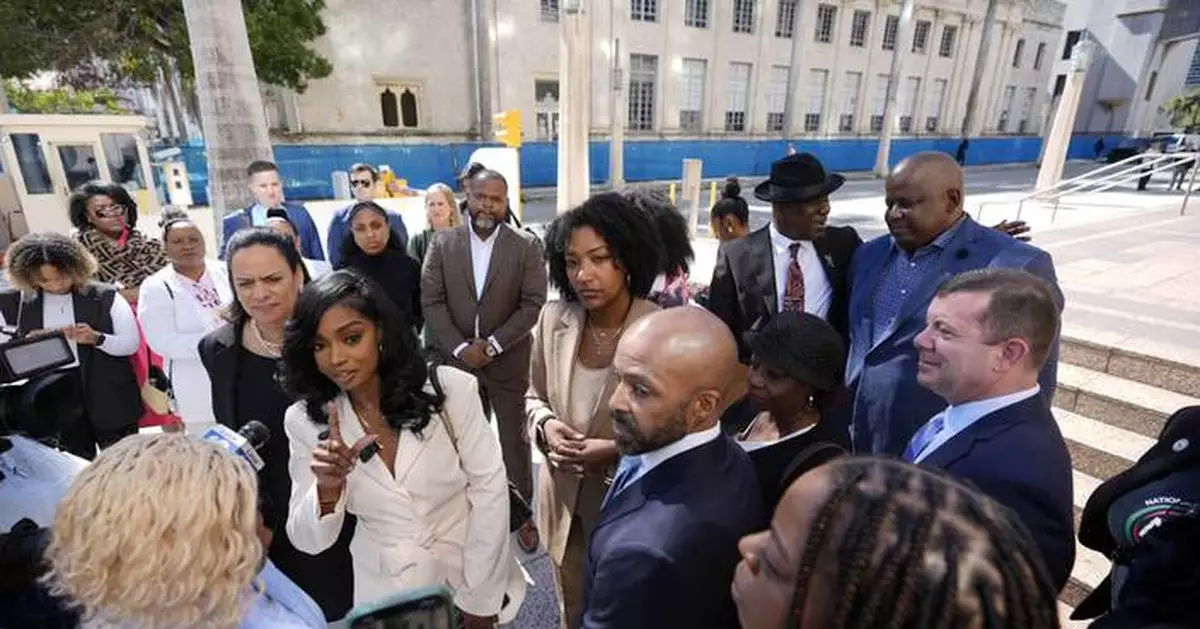NEW YORK (AP) — A venture capital firm has closed down a grant contest for Black women business owners as part of a settlement agreement with a conservative group that had filed a lawsuit alleging the program was discriminatory, both sides announced Wednesday.
The settlement came two months after a U.S. federal court of appeals panel ordered the Atlanta-Based Fearless Fund to suspend the Strivers Grant Contest, which provided $20,000 to businesses that are majority owned by Black women. In a 2-1 ruling, the appeals court ruled that the American Alliance for Equal Rights, led by conservative activist Ed Blum, was likely to prevail in its lawsuit claiming that the program illegally discriminated on the basis of race.
The lawsuit against the Fearless Fund, the Atlanta-based firm that has helped grow popular companies like beauty retailer Thirteen Lune and restaurant chain Slutty Vegan, has been closely watched as a bellwether in the growing legal battle waged by conservative groups against corporate diversity programs.
Bolstered by the Supreme Court case that ended affirmative action in college admissions, conservatives have targeted dozens of companies and government institutions and challenged a wide array of programs and policies bolstering diversity, equity and inclusion, known as DEI.
In a statement, Blum, who also brought the case that resulted in the affirmative action ruling, reiterated his view that “race-exclusive programs like the one the Fearless Fund promoted are divisive and illegal."
In a statement, Arian Simone, CEO and co-founder of the Fearless Fund, said she was pleased to put the lawsuit behind her and continue with the firm’s mission of “helping and empowering women of color entrepreneurs in need.”
So far, none of the anti-DEI lawsuits have resulted in a precedent-setting ruling on the level of the Supreme Court decision on affirmative action. Ben Crump, a civil rights attorney who represented the Fearless Fund, said that the settlement ensured that lawsuit ended without setting any such precedent.
“By strategically avoiding a Supreme Court ruling that could have eliminated race-based funding, we protected vital opportunities for the entire Black and brown community,” Crump said in a statement.
Still, a growing number of companies — most recently including Lowe's and John Deere — have altered or dropped DEI programs amid the onslaught of lawsuits and conservative activist pressure.
In statement, Blum said “it is to be hoped race-exclusive programs like the one offered by the Fearless Fund will be stopped and opened to everyone, regardless of their race.” Blum added that he had encouraged the Fearless Fund to open the Strivers Grant Contest to women of other races rather than shut it down. Other companies, including several law firms sued by Blum, have changed scholarships or fellowships to open it to all races.
Alphonso David, president and CEO of The Global Black Economic Forum and counsel to the Fearless Fund, shot back in an interview with The Associated Press that the “Fearless Fund was not going to allow Ed Blum to dictate how to run their business.” David said the Strivers Grant was a small part of the Fearless Fund's operations and had already been scheduled to wind down. He said the settlement “is very narrow” and will not affect the venture capital's firms investments or other activities.
The Strivers Grant Fund was one of several programs run by the foundation arm of the Fearless Fund, which was founded with backing from investors including JPMorgan Chase & Co. and Mastercard, to address the wide racial disparity in funding for businesses owned by women of color. In her statement Wednesday, Simone announced a new $200 million debt fund that will offer loans of between $5,000 to $250,000 to “under-resourced founders.”
David Glasgow, executive director of the Meltzer Center for Diversity, Inclusion, and Belonging at New York University’s School of Law, said the decision to settle the lawsuit was not surprising because “the gamble you are making in cases like this is that if you continue fighting you will get more adverse rulings that have the potential to cause wider damage.”
“People are certainly seeing the writing on the wall on how the six-justice conservative super majority in the Supreme Court would rule in DEI-related cases,” Glasgow said.
The Fearless Fund case and other lawsuits have revealed deep divisions among the country's judiciary on the issue of DEI.
Two judges, appointed by former President Donald Trump to the U.S. Court of Appeals for the 11th Circuit in Miami, sided with Blum's argument that the grant program violates section 1981 of the 1866 Civil Rights Act, which prohibits discrimination on the basis of race when enforcing contracts. The Reconstruction-era law was originally intended to protect formally enslaved people from economic exclusion, but anti-affirmative action activists have been leveraging it to challenge programs intended to benefit minority-owned businesses.
In sharp dissent, Judge Robin Rosenbaum, an appointee of former President Barack Obama, said none of the anonymous plaintiffs represented by Blum demonstrated that they had any real intention to apply for the grants and likened their claims of harm to soccer players trying to win by “flopping on the field, faking an injury.”
The Associated Press’ women in the workforce and state government coverage receives financial support from Pivotal Ventures. AP is solely responsible for all content. Find AP’s standards for working with philanthropies, a list of supporters and funded coverage areas at AP.org.
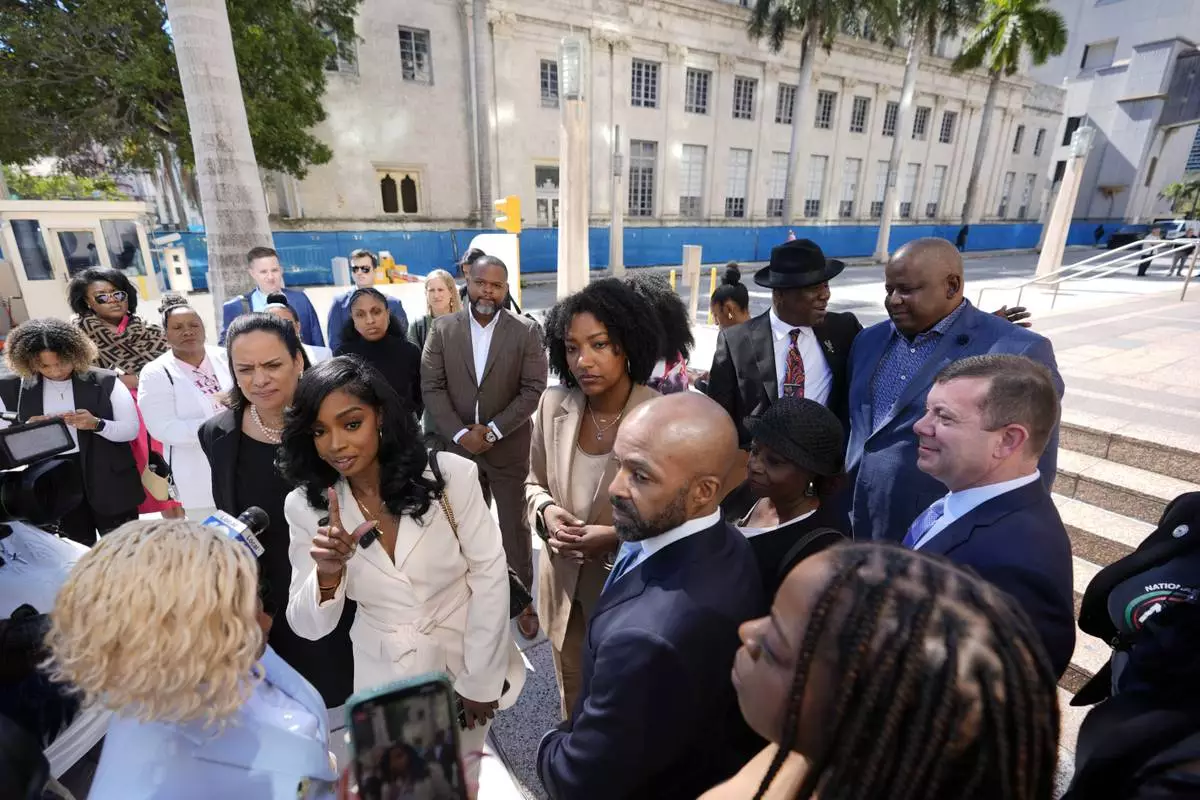
FILE - Co-founders and CEOs of The Fearless Fund Arian Simone, center left, and Ayana Parsons, center right, speak to journalists outside the James Lawrence King Federal Building in Miami, as they leave with their legal team following a hearing on Wednesday, Jan. 31, 2024. (AP Photo/Rebecca Blackwell, File)
SRINAGAR, India (AP) — In Indian-controlled Kashmir, many people boycotted elections for decades in protest against Indian rule. But in the run-up to the local election beginning Wednesday, many are willing to buck that trend and use their vote to deny Prime Minister Narendra Modi’s party the power to form a local government in the disputed region.
The vote is the first in a decade, and the first since Modi’s Hindu nationalist government in 2019 scrapped the Muslim-majority region’s special status and downgraded the former state to a federally governed territory. The move — which largely resonated in India and among Modi supporters — was mostly opposed in the region as an assault on its identity and autonomy.
“Boycotts will not work in this election,” said Abdul Rashid, a resident in southern Kashmir’s Shangus village. “There is a desperate need to end the onslaught of changes coming from there (India).”
The election will allow residents to have their own truncated government and a local parliament called an assembly, instead of remaining under New Delhi’s direct rule. The region’s last assembly election was held in 2014, after which Modi’s Bharatiya Janata Party for the first time ruled the region in a coalition with the local Peoples Democratic Party.
But the government collapsed in 2018 after BJP withdrew from the coalition. Polls in the past have been marked with violence, boycotts and vote-rigging, even though India called them a victory over separatism.
This time, New Delhi says the polls are ushering in democracy after more than three decades of strife. However, many locals see the vote as an opportunity not only to elect their own representatives but also to register their protest against the 2019 changes.
Polling will be held in three phases. The second and third phases are scheduled for Sept. 25 and Oct. 1. Votes will be counted on Oct. 8, with results expected that day.
Kashmir is divided between nuclear-armed rivals India and Pakistan. Since 1947, the neighbors have fought two wars over its control, after British rule of the subcontinent ended with the creation of the two countries. Both claim the Himalayan territory in its entirety.
In 2019, the Indian-controlled part of the region was divided into two territories, Ladakh and Jammu-Kashmir, ruled directly by New Delhi. The region has been on edge since it lost its flag, criminal code, constitution and inherited protections on land and jobs.
Multiple pro-India Kashmiri parties, many of whose leaders were among thousands jailed in 2019, are contesting the election, promising to reverse those changes. Some lower-rung separatist leaders, who in the past dismissed polls as illegitimate exercises under military occupation, are also running for office as independent candidates.
India’s main opposition Congress party, which favors restoration of the region’s statehood, has formed an alliance with the National Conference, the region’s largest party. Modi’s BJP has a strong political base in Hindu-dominated areas of Jammu that largely favor the 2019 changes but is weak in the Kashmir Valley, the heartland of anti-India rebellion.
“Our main concern is governance through local representatives. It will be good for us if the BJP forms the government here as it’s already in power at the center,” said Chuni Lal, a shopkeeper in Jammu city.
The vote will see a limited transition of power from New Delhi to the local assembly, with a chief minister at the top heading a council of ministers. But Kashmir will continue to be a “Union Territory” — a region directly controlled by the federal government — with India’s Parliament remaining its main legislator.
The elected government will have partial control over areas like education, culture and taxation but not over the police. Kashmir’s statehood must be restored for the new government to have powers similar to other states in India. However, it will not have the special powers it enjoyed before the 2019 changes.
Last year, India’s Supreme Court endorsed the government’s 2019 changes but ordered New Delhi to conduct local polls by the end of September and restore Kashmir’s statehood. Modi’s government has promised to restore statehood after the polls but has not specified a timeline.
Elections in Indian-held Kashmir have remained a sensitive issue. Many believe they have been rigged multiple times in favor of local politicians who subsequently became India’s regional enforcers, used to incrementally dilute laws that offered Kashmir a special status and legitimize New Delhi’s militaristic policies.
In the mid-1980s, the region’s dissident political groups emerged as a formidable force against Kashmir’s pro-India political elite but lost the 1987 election widely believed to have been rigged. A public backlash followed, with some young activists taking up arms and demanding a united Kashmir, either under Pakistani rule or independent of both.
India insists the insurgency is Pakistan-sponsored terrorism, a charge Islamabad denies. Tens of thousands of people have been killed in the fighting, which most Kashmiri Muslims consider a legitimate freedom struggle.
Noor Ahmed Baba, a political scientist, said the outcome of the polls “is not going to change the dynamics of the Kashmir dispute” since it will end with a largely powerless legislature, but will be crucial for optics.
“If local parties win, it is going to put some pressure on the central government and perhaps delegitimize from a democratic perspective what has been done to Kashmir. But a BJP win can allow the party to consolidate and validate 2019 changes in the local legislature,” Baba said.
India’s ruling BJP is not officially aligned with any local party, but many politicians believe it is tacitly supporting some parties and independent candidates who privately agree with its stances.
The National Conference party says Modi’s BJP is trying to manipulate the election through independent candidates. “Their (BJP’s) concerted effort is to divide the vote in Kashmir,” said Tanvir Sadiq, a candidate from the National Conference.
The BJP’s national secretary, meanwhile, says his party’s former ally, the Peoples Democratic Party, and the National Conference are being supported by former militants. Ram Madhav said at a recent rally that they want to return the region to its “trouble-filled days.”
For residents whose civil liberties have been curbed, the election is also a chance to choose representatives they hope will address their main issues.
Many say that while the election won’t solve the dispute over Kashmir, it will give them a rare window to express their frustration with Indian control.
“We need some relief and end of bureaucratic rule here,” said Rafiq Ahmed, a taxi driver in the region’s main city of Srinagar.
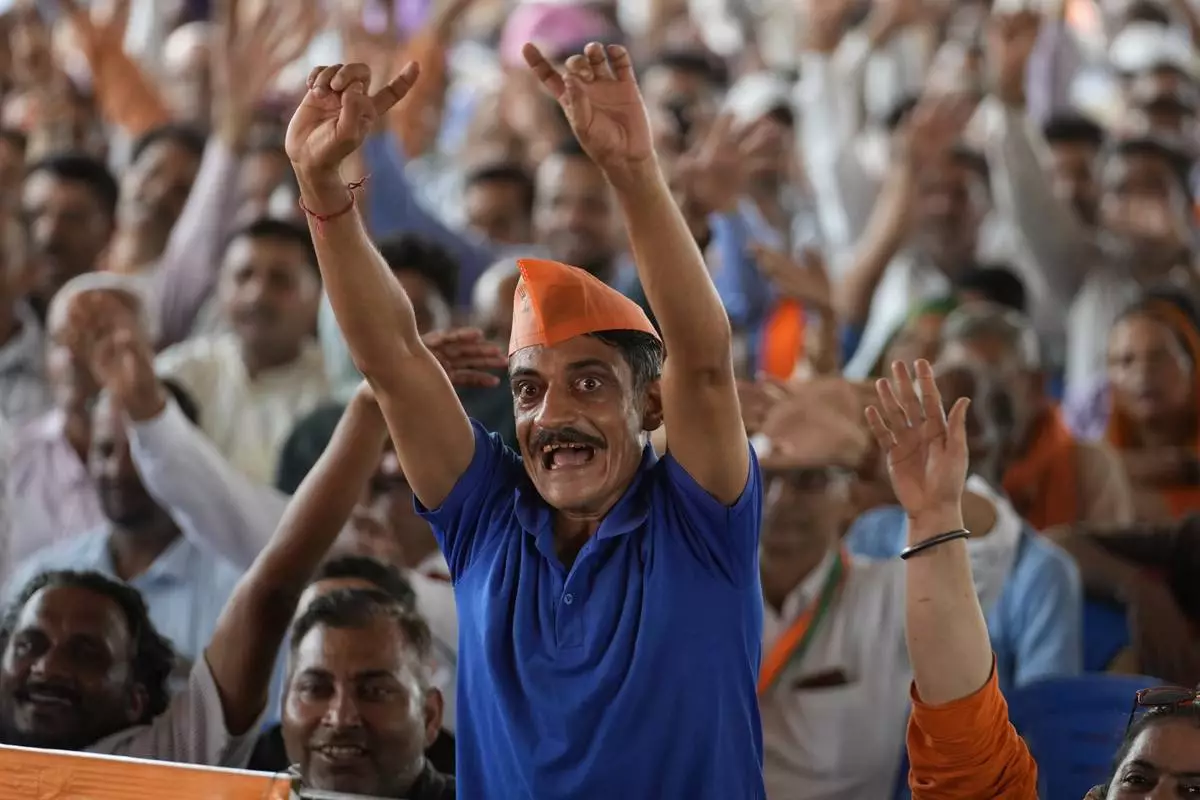
Bharatiya Janata Party (BJP) party workers attend a rally, ahead of Jammu and Kashmir Assembly elections in Jammu, India, Saturday Sep.7, 2024.(AP Photo/Channi Anand, File)
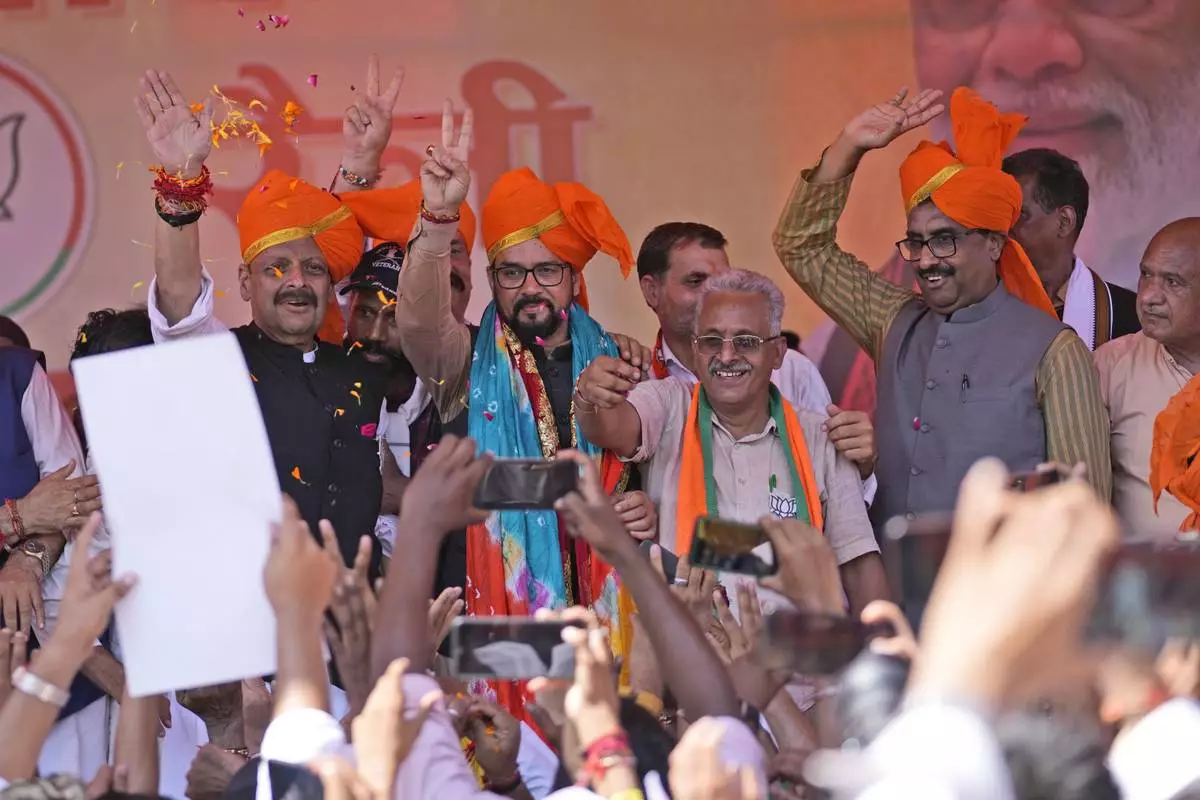
Former union minster and star campaigner of BJP Anurag Thakur and state in charge Ram Madhav wave to supporters during a campaign rally, after party candidates filed the nomination papers for the upcoming Jammu and Kashmir Assembly elections at Nagrota outskirts of Jammu, India, Thursday, Sep.12, 2024.(AP Photo/Channi Anand, File)
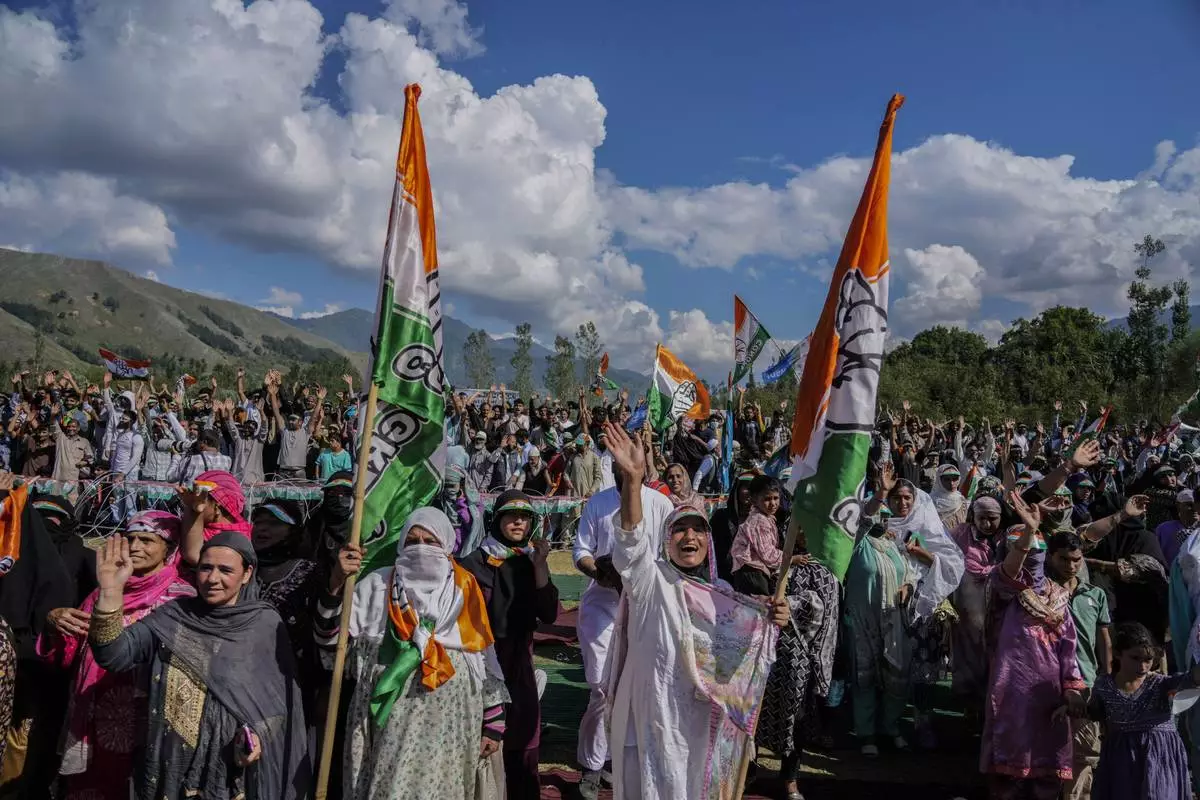
Supporters of India's opposition Congress party, wave during an election rally at Dooru some 78 kilometers (49 miles) south of Srinagar, Indian controlled Kashmir,Wednesday, Sept. 4, 2024. (AP Photo/Mukhtar Khan, File)
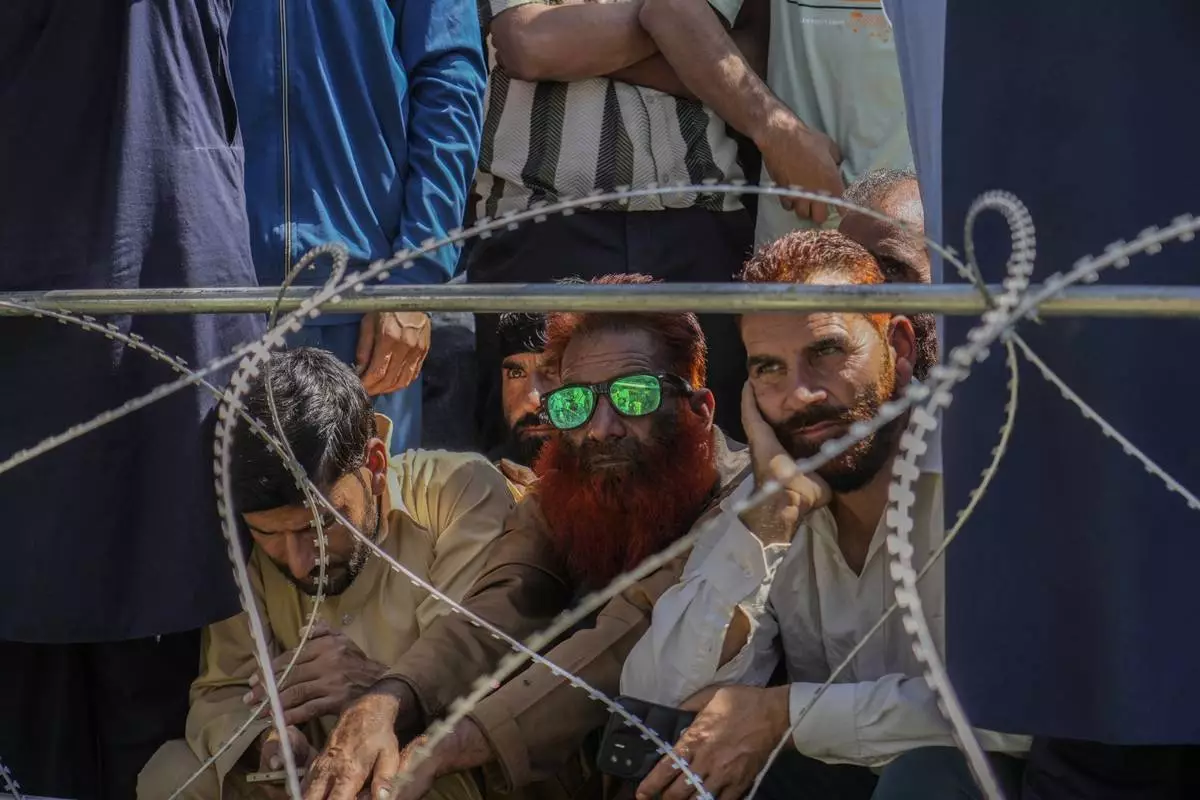
Supporters of Awami Ittehad Party (AIP) leader Sheikh Abdul Rashid, also known as Engineer Rashid, attend a public rally at Baramulla, some 55 kilometers (34 miles) north of Srinagar, Indian controlled Kashmir, Sept. 12, 2024. (AP Photo/Mukhtar Khan, File)
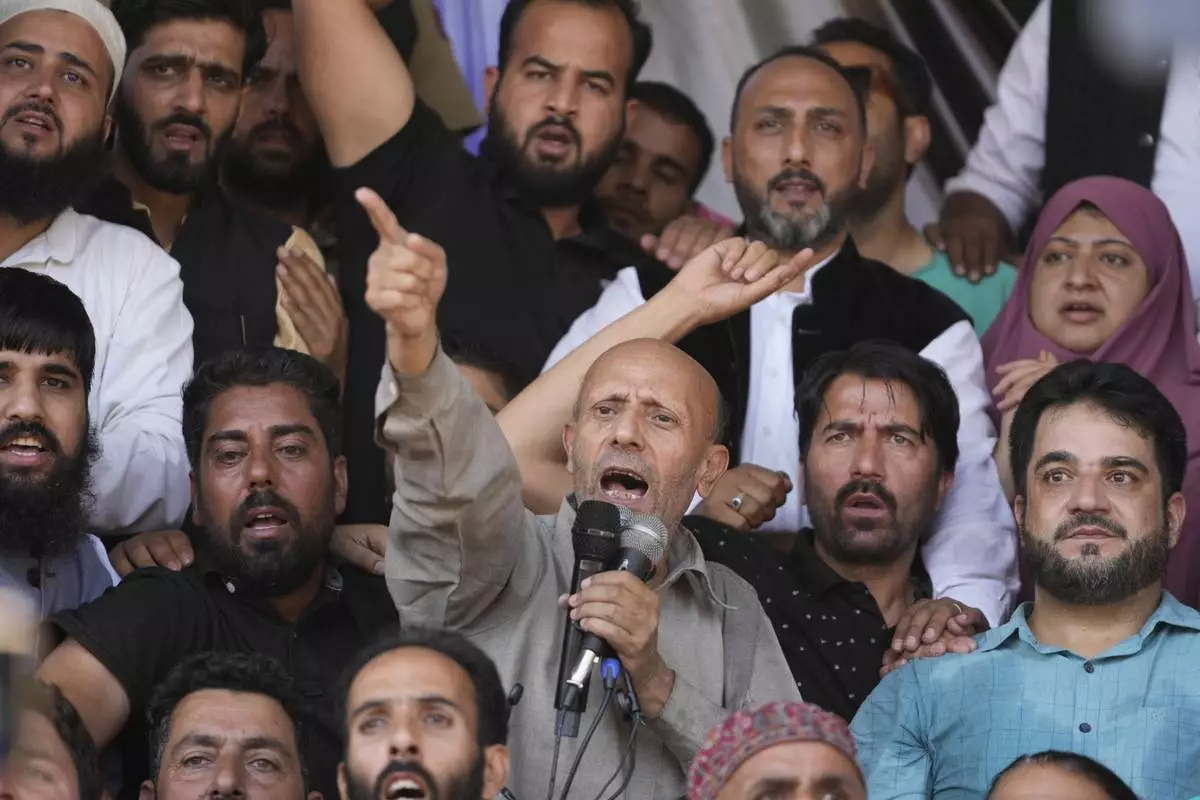
Awami Ittehad Party (AIP) leader Sheikh Abdul Rashid, also known as Engineer Rashid, speaks during a public rally at Baramulla, some 55 kilometers (34 miles) north of Srinagar, Indian controlled Kashmir, Sept. 12, 2024. (AP Photo/Mukhtar Khan, File)
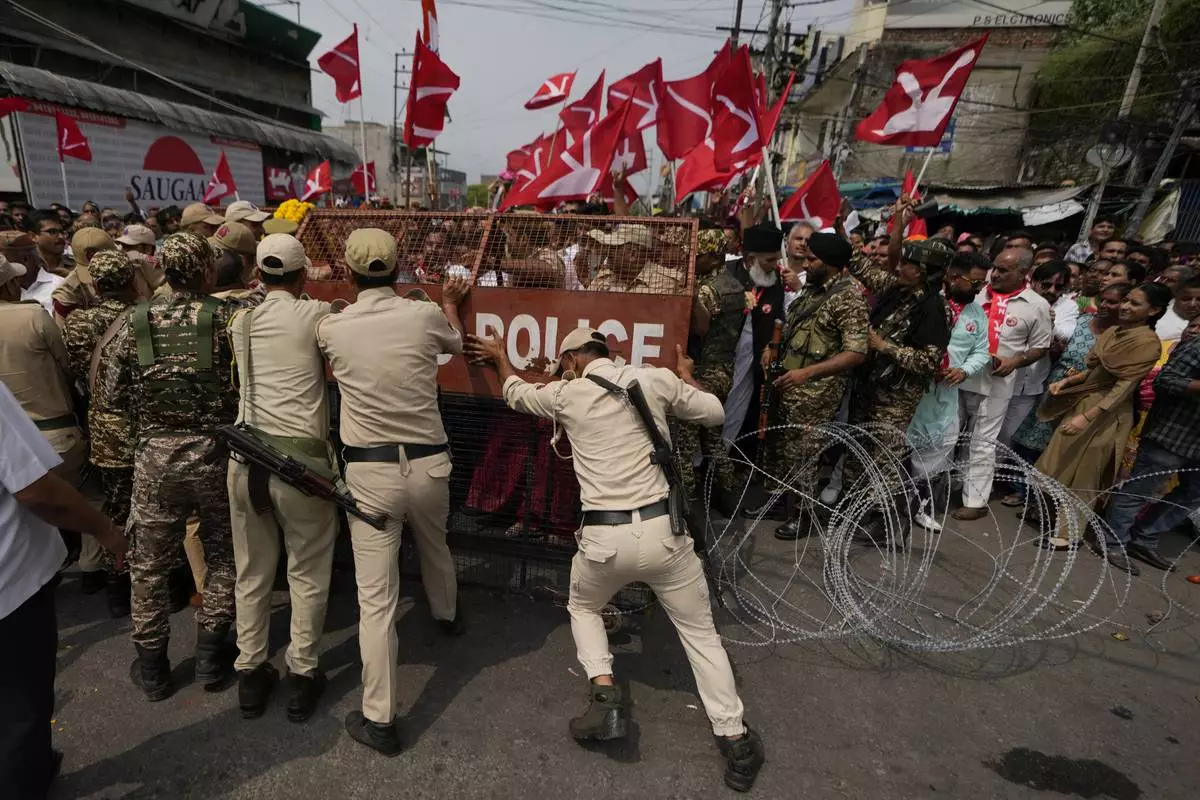
Policemen stop supporters of National Conference Party from accompanying their candidate during the filing of nomination papers for the upcoming Jammu and Kashmir Assembly elections in Jammu, India, Sept.10, 2024. (AP Photo/Channi Anand, File)
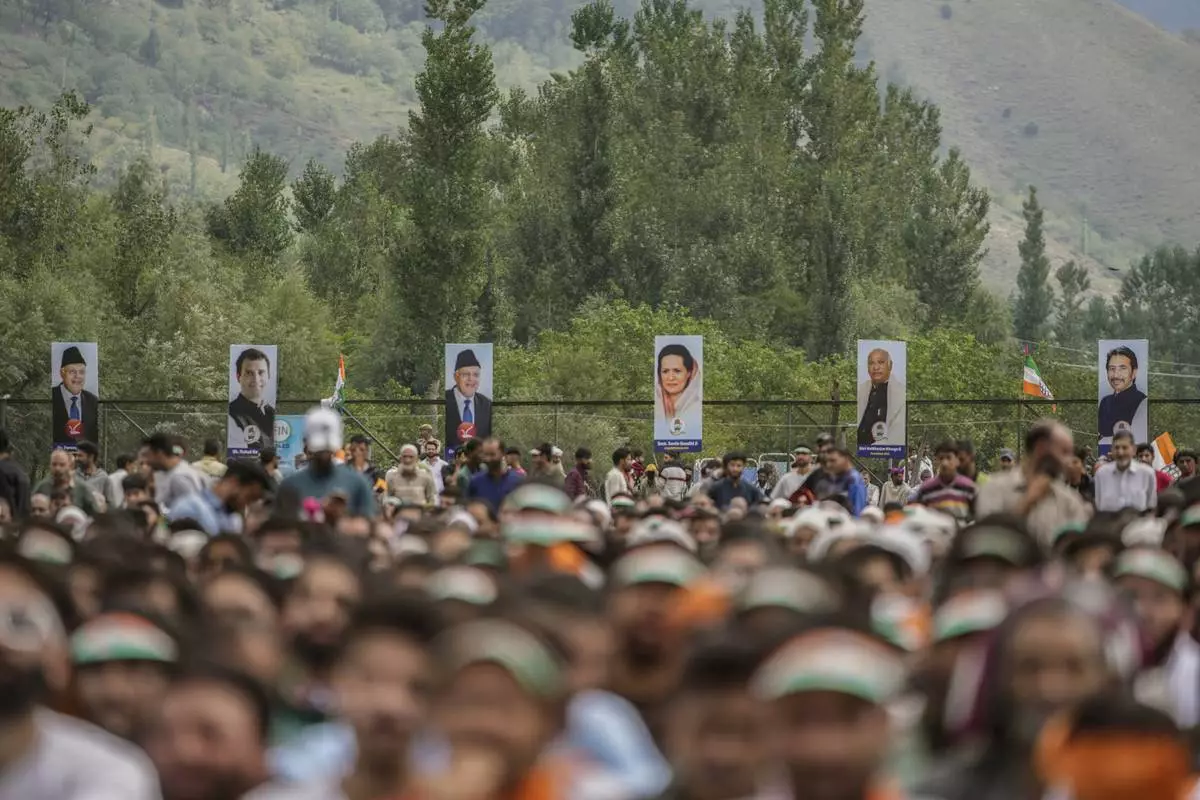
Supporters listen as India's opposition Congress party leader Rahul Gandhi, unseen, speaks during an election rally at Dooru some 78 kilometers south of Srinagar, Indian controlled Kashmir, Wednesday, Sept. 4, 2024. (AP Photo/Mukhtar Khan, FILE)
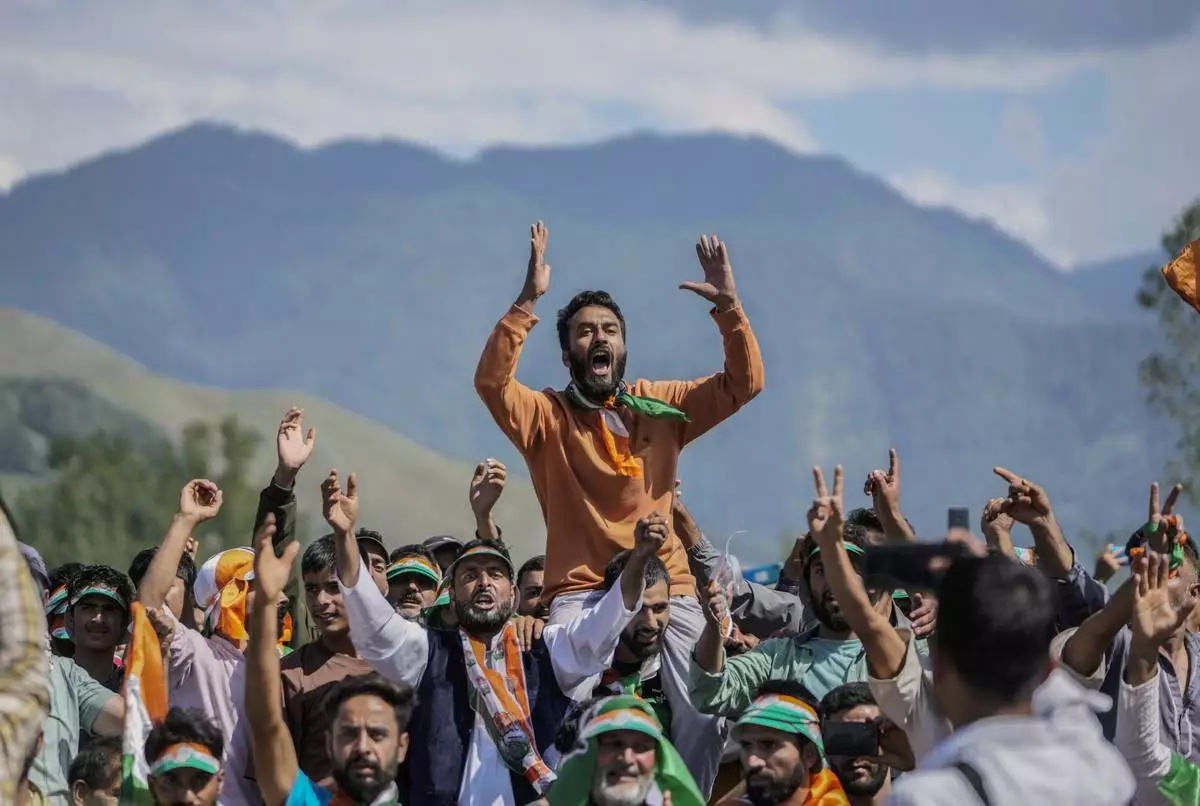
Supporters of India's opposition Congress party leader Rahul Gandhi, shout slogans during an election rally at Dooru, some 78 kilometers south of Srinagar, Indian controlled Kashmir, Sept. 4, 2024. (AP Photo/Mukhtar Khan, File)
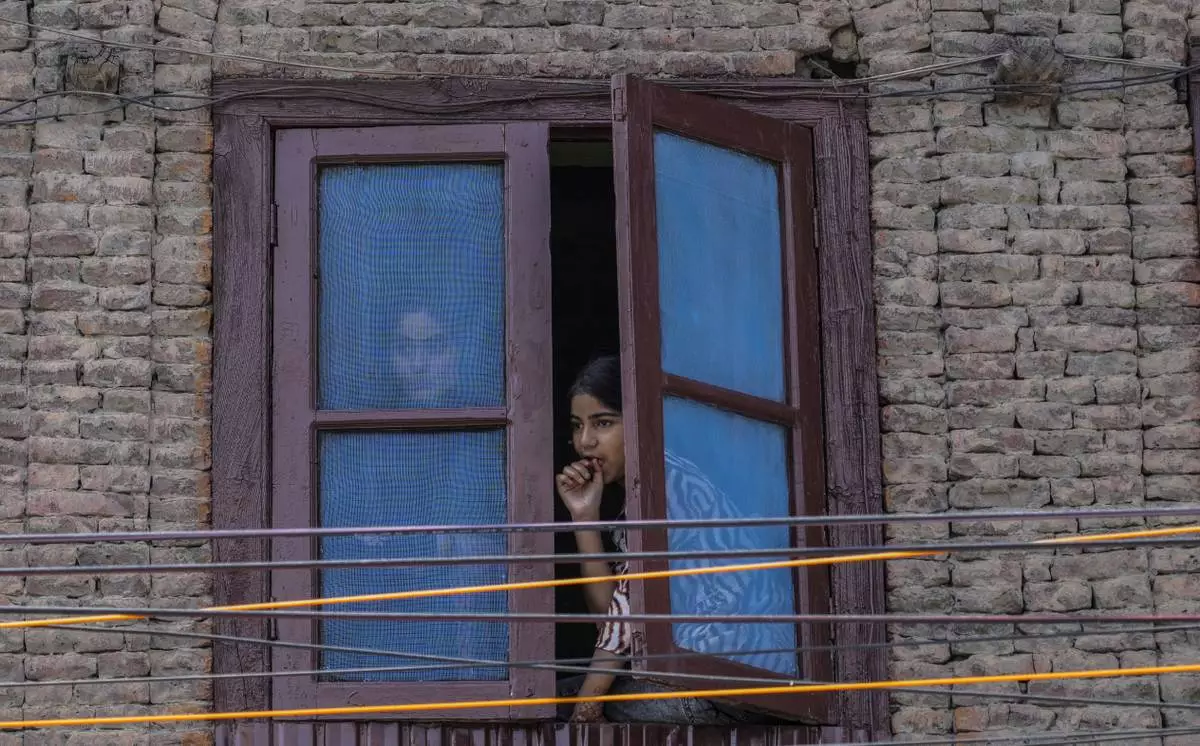
People watch from a window during a road show of Peoples Democratic Party (PDP) candidate Arif Laigroo, in Srinagar, Indian-controlled Kashmir Sunday, Sept. 15, 2024. (AP Photo/Mukhtar Khan, File)
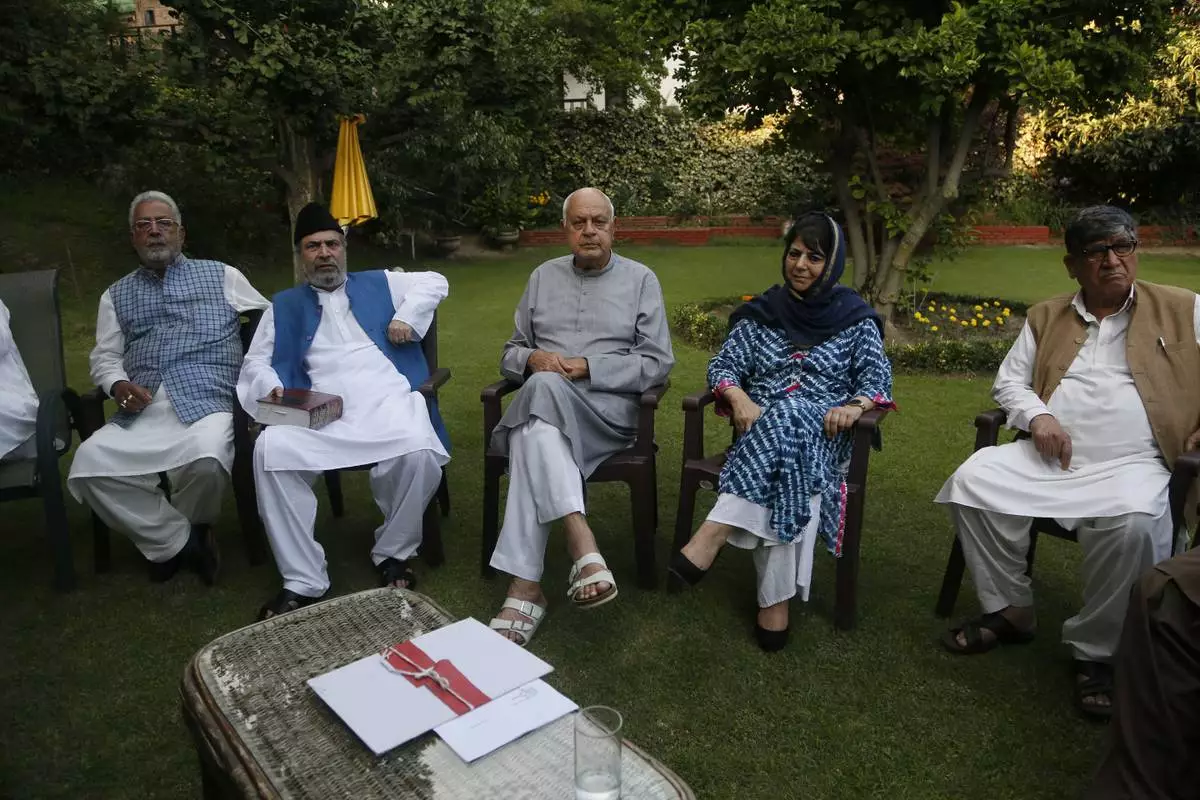
National Conference (NC) President Farooq Abdullah, center, Peoples Democratic Party (PDP) leader Mehbooba Mufti, second right, and other leaders sit during an all parties meeting on restoration of the special status that was stripped last year from Indian-administered Kashmir, in Srinagar, India. (AP Photo/Mukhtar Khan, File)
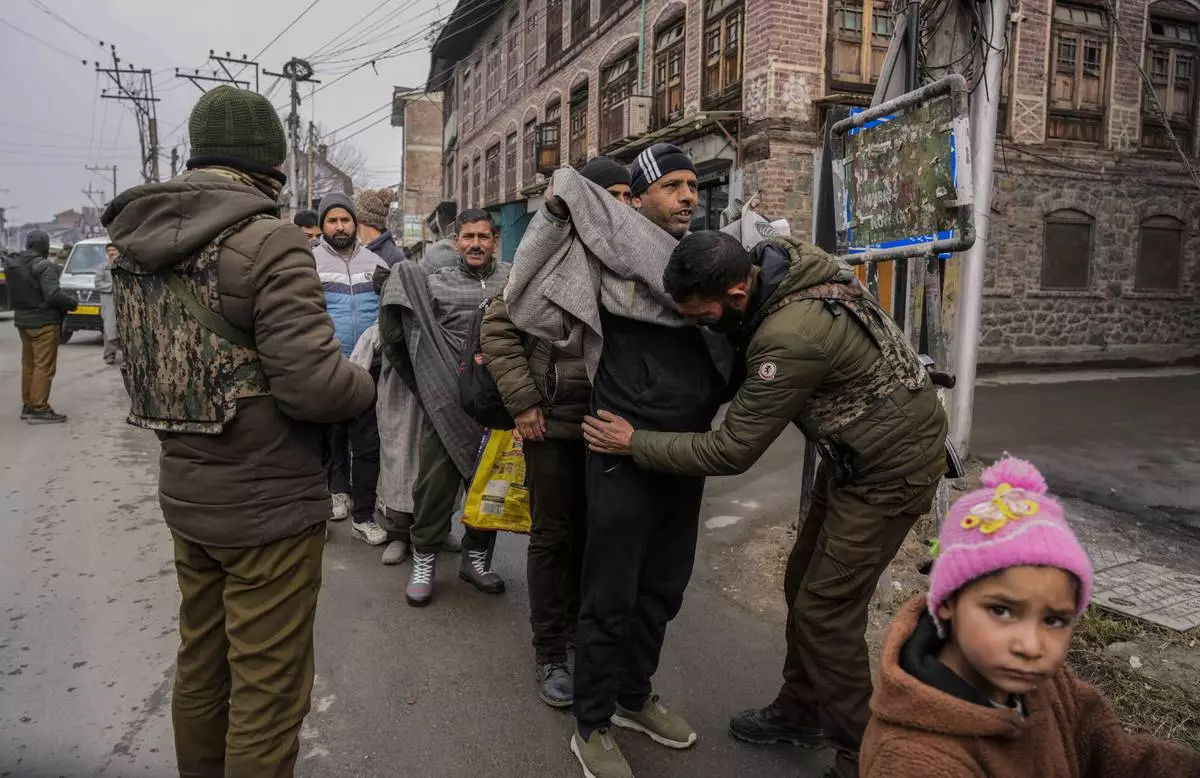
A child looks on as Indian policemen frisk Kashmiri pedestrians during a surprise security check in Srinagar, Indian controlled Kashmir, Monday, Jan. 9, 2023. (AP Photo/Mukhtar Khan, File)
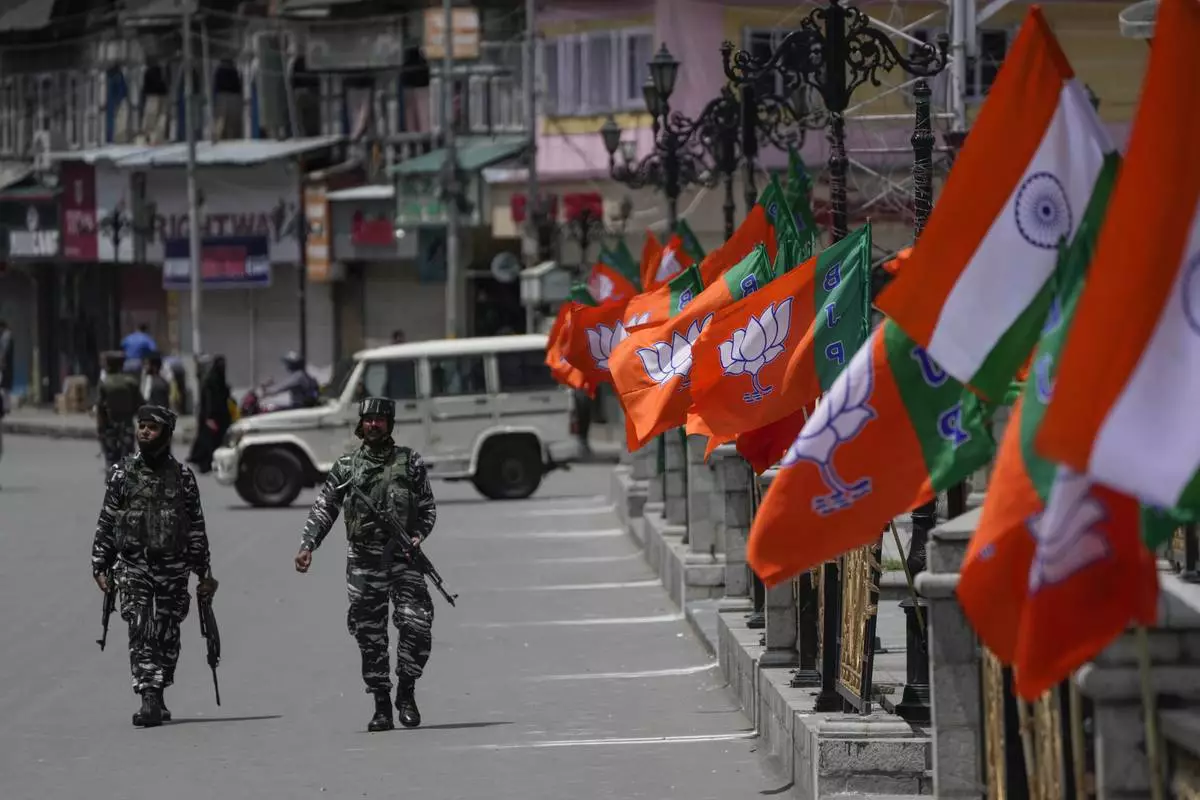
Indian security forces walk past Indian flags and flags of India's ruling Bharatiya Janata Party (BJP) as a motorcycle rally by BJP youth wing to the Kargil War Memorial passes through Srinagar, Indian controlled Kashmir, Monday, July 25, 2022. (AP Photo/Mukhtar Khan, File)
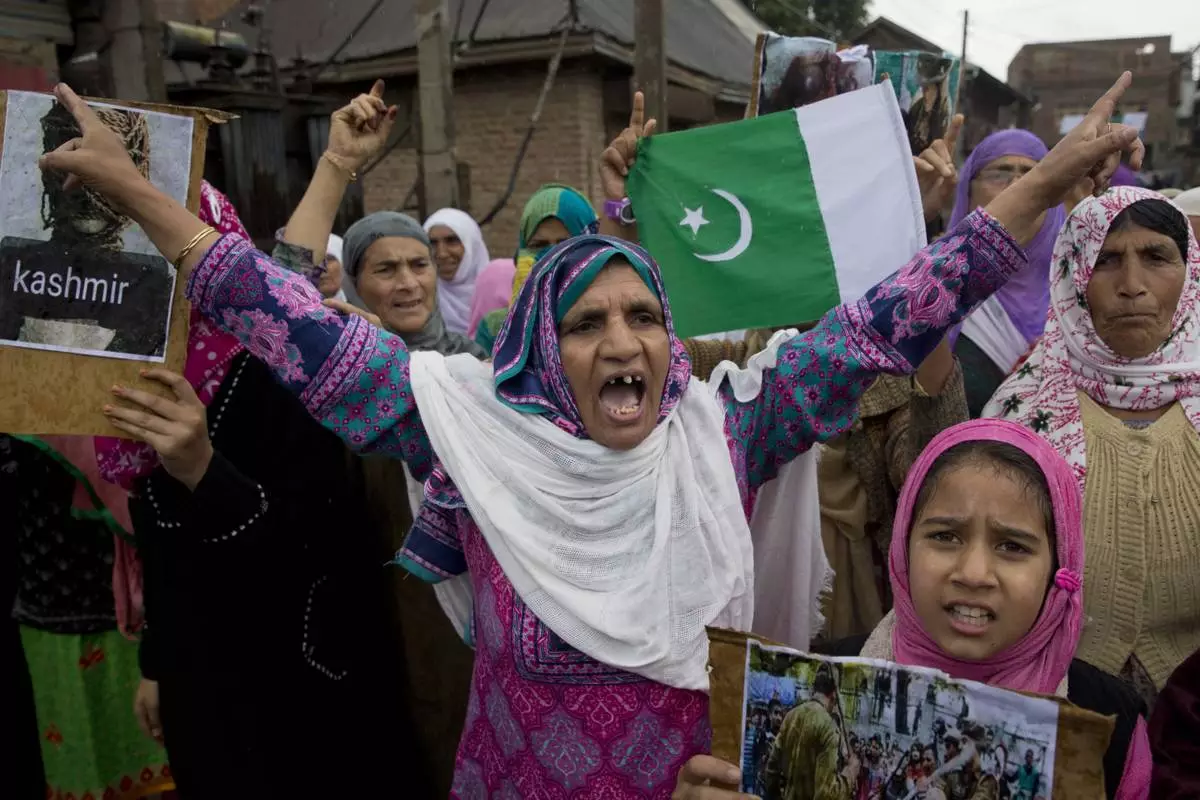
Kashmiris shout slogans during a protest after Friday prayers against the abrogation of article 370, on the outskirts of Srinagar, Indian controlled Kashmir, Friday, Oct. 4, 2019.(AP Photo/ Dar Yasin, File)
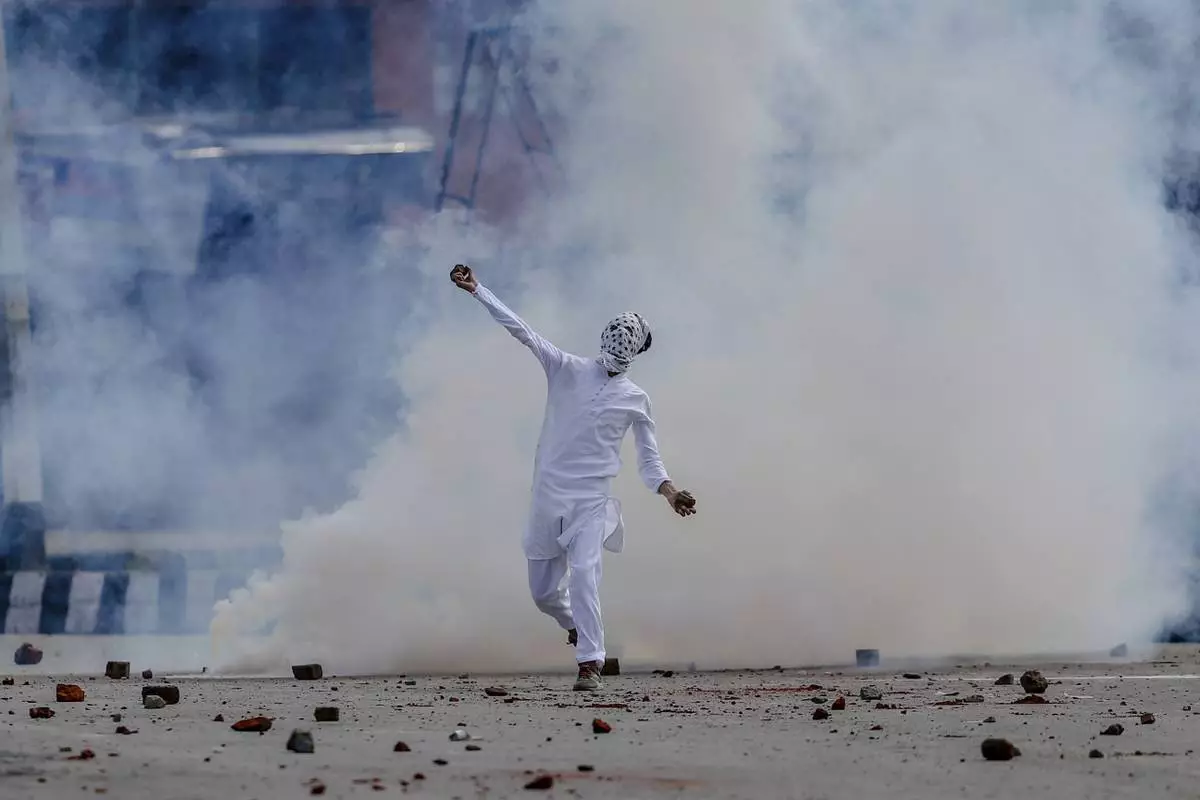
A masked protester throws stone at Indian security forces during a protest after Eid prayers in Srinagar, Indian controlled Kashmir, Saturday, June 16, 2018. (AP Photo/Dar Yasin, File)
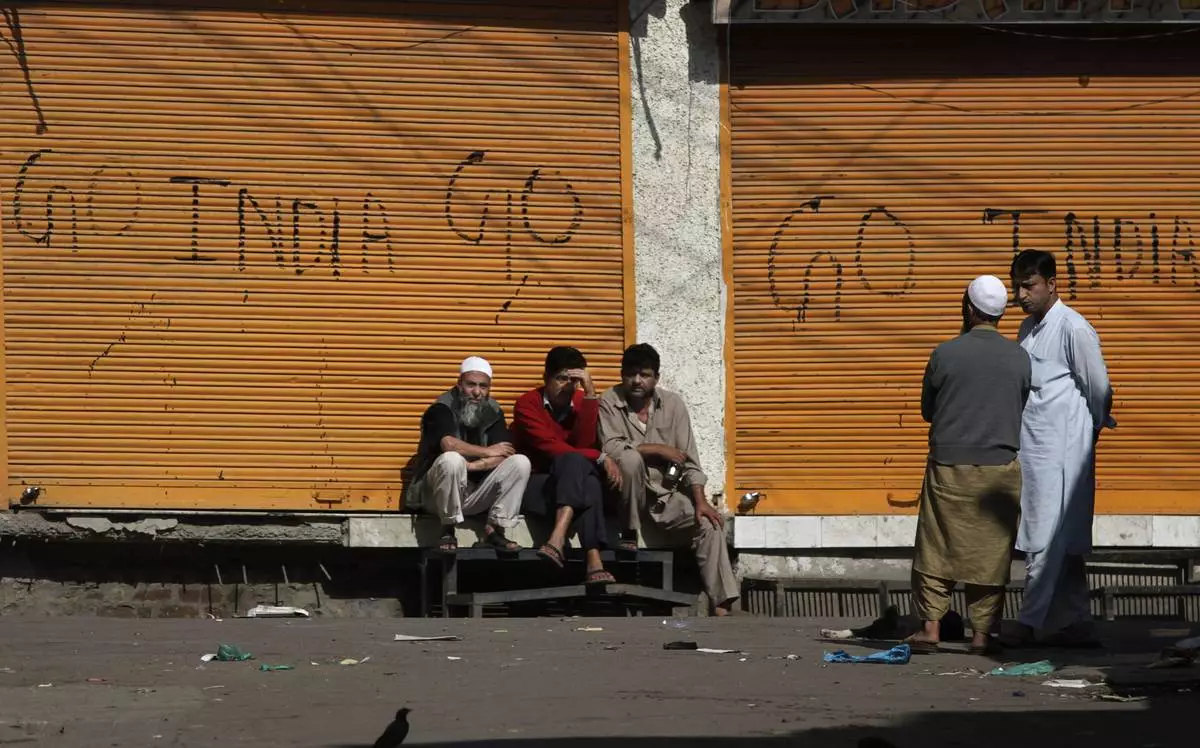
Kashmiris sit outside closed shops painted with graffiti during a curfew in central Srinagar, India, Thursday, Sept. 16, 2010. (AP Photo/Dar Yasin, File)



